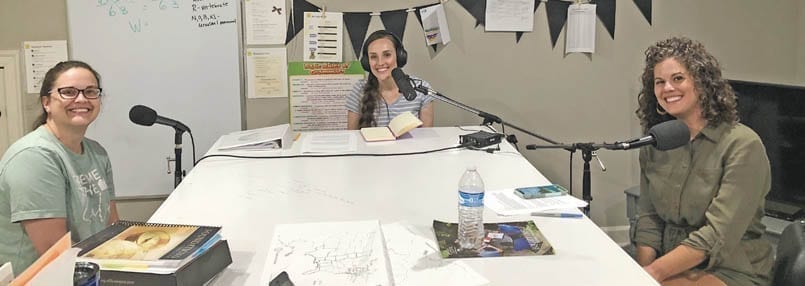18 Jun 2020 Homeschooling: Parents ponder ‘Now what?’
Everything we know has been turned upside down. The things we never had to consider, or at least didn’t seriously have to consider, are what dominates each decision we make.
Avoiding close contact with other humans not in your family has been crucial to keeping us all safe for the past few months. We’re starting to see recommendations and guidelines for the coming months, specifically for schools — these buildings where hundreds of kids gather for hours every single day. It’s completely natural to wonder how to keep them safe while meeting their educational needs.

A few months ago, parents all over the world became homeschooling teachers, whether they wanted to or not. For some, the option of homeschooling has become very attractive. I get messages daily from people who never thought they would homeschool but are seriously considering it because of the current situation.
Thankfully, it’s one of my favorite things in the world to help other parents understand and feel confident in their ability to educate their children. Recently, a friend and I started a podcast (The Deeply Rooted Homeschool) to encourage and equip other homeschool parents. In our first episode, we interviewed Ashley Matthews, a director of a local homeschool co-op, about how to get started after you’ve decided to homeschool. She offered some really great advice.
What are things to consider to homeschool?
“The first thing you need to do is pray for wisdom,” Ashley said. “We all need wisdom and God’s direction. James 1:5 says, ‘If any of you lacks wisdom, let him ask God, who gives generously to all without reproach, and it will be given to him.’ This is a great promise because all we have to do is ask and God will give it to us. If God has put homeschool on your heart, then he is going to direct you. He will put people in your path to help.”
What are state requirements?
“A good place to do that is HSLDA.org. They have some great information on their site. Our state requires that you fill out an intent to homeschool. It’s a simple form you fill out and submit to the district you live in. The website will also state whether there are teacher requirements or specific subjects you must teach. There are also requirements for assessments and immunizations. For Arkansas, there are no mandated teacher requirements, subjects or immunizations.”
What are your values and goals?
“Sit down with your spouse and think about the goals and values you have for your family and your kids,” Ashley said. “What do you want them to have when they leave your house? What kind of people do you want them to be?”
Look at what you want the fruit to be, the end goal, and then backtrack as you plan.
“For example, for our family, we want our kids to have a biblical world view — we want everything that they’re taught to be through the lens of the Bible and Christ — so that was really important to us. Another thing for us is reading good literature, being exposed to living books and documents and to think logically. I want my kids to be able to form good opinions. Lastly, we want them to have a love of learning.”
Research
“There are a ton of homeschool methods out there,” Ashley said. “We’ve chosen the classical model, but there are many others out there — Charlotte Mason, Unschool or a combination of multiple methods. You’ll need to determine what works best for your family and your children.”
There are also great books out there with lots of information on different methods.
Talk to homeschool parents
Chances are you know multiple families that homeschool. Talk to them. Talk to the mom and the dad. “Where do I get started? What did you do? God will put those people in your path to learn from,” Ashley said. “Use them as a resource.”
Choose curriculum
Once you’ve done the other steps, you should start looking into curriculum. There are many curriculum options, and it can be overwhelming; however, some of that overwhelming can be eased if you’ve already followed the steps mentioned before.
“There are a couple of websites that can help,” Ashley said. “Cathyduffyreviews.com is a great one. She has a book called ‘102 Top Picks for Homeschool Curriculum.’ There aren’t a ton of places to be able to tangibly flip through homeschool curriculum; however, at christianbook.com, they have previews of lots of curriculum options. Rainbowresource.com is also very helpful when purchasing curriculum, and they offer free shipping when you spend $50.”
Remember, God has given you everything you need to teach your kids. You don’t need a teaching degree. Honestly, you don’t even need a college education. If you have your child’s best interest in mind and a desire to help them succeed, then you have what it takes.
A local homeschool community is also very helpful. Other parents who have similar goals and values to walk alongside you and encourage you are some of the best gifts for this homeschool parent.
- Homeschooling options from a homeschool director - August 2, 2022
- Sharing your faith - March 31, 2022
- Searcy’s Carmichael Center home to many Santas - November 30, 2021









